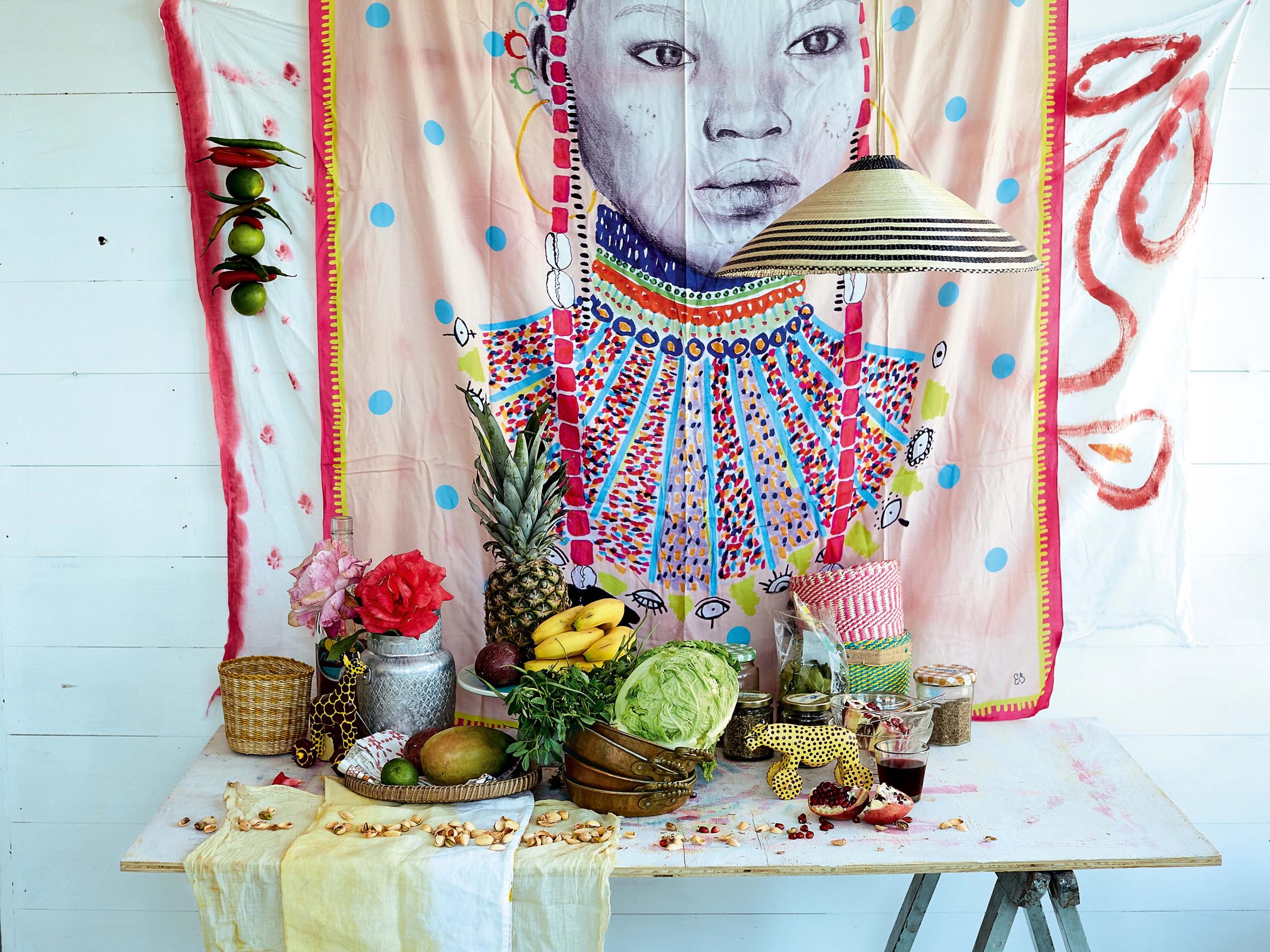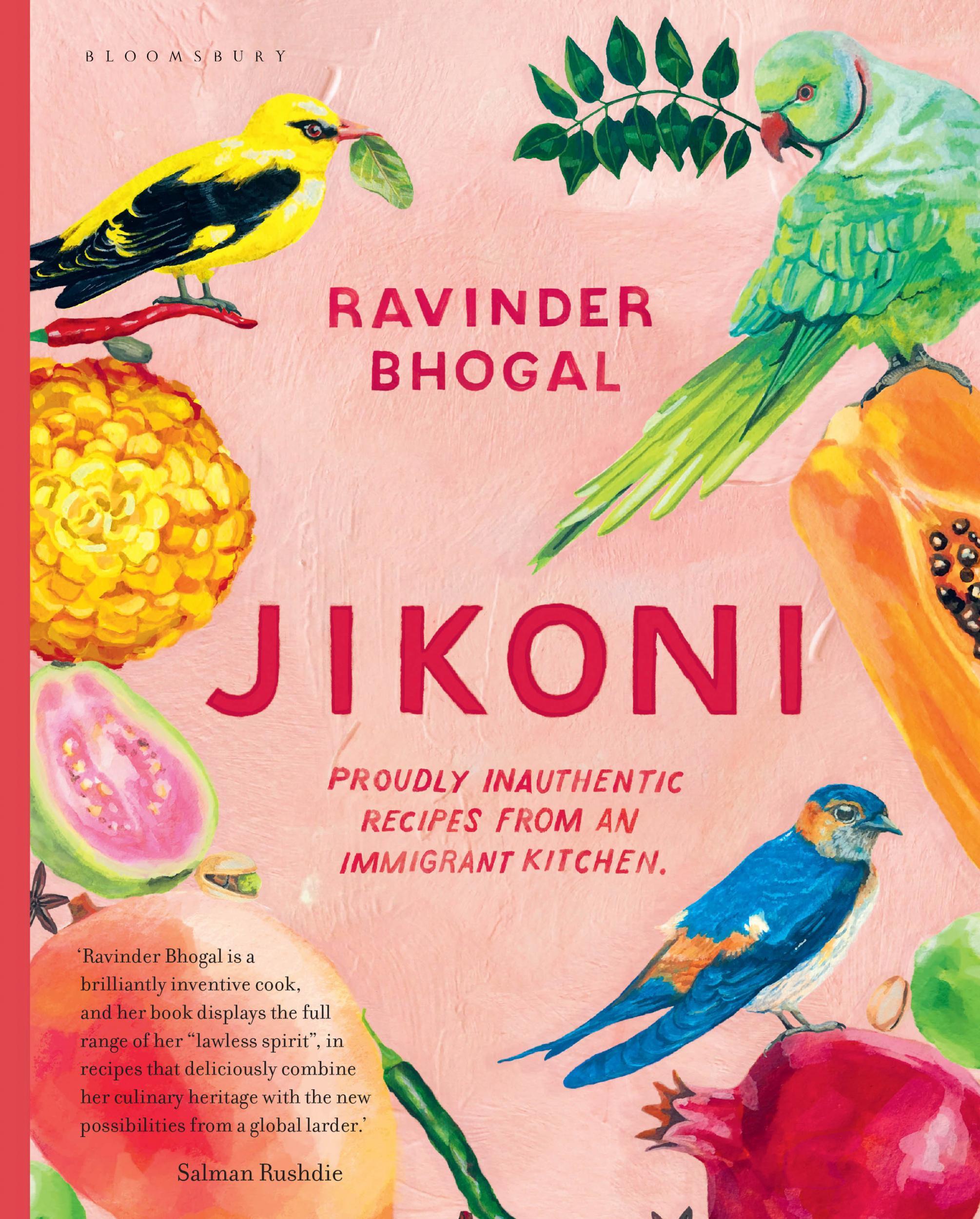Ravinder Bhogal: ‘Food is an important tool in breaking down the borders that politics has created’
‘Jikoni’ is the the food writer and chef’s second cookbook. Emma Henderson talks to her about the influence of heritage on food, her change in career and how the restaurant industry will cope after coronavirus


Jikoni is the name of your restaurant in Marylebone and your second cookbook which has just been published, but what does it mean?
Jikoni is a Swahili word – the language spoken in Kenya where I was born and simply means kitchen.
The subtitle of the book is: “Proudly inauthentic recipes from an immigrant kitchen.” Do you think the word authentic has lost its meaning when it comes to recipes and food?
I think authenticity is a very subjective concept and can be very tedious when people get hung up on it.
Ask 50 people from London to Glasgow how they make their Yorkshire pudding and you will get a different answer every time.
Our recipes are open to adaptation according to our culture, circumstances and landscape and can only ever be authentic to us.
Before cooking professionally, you were a fashion journalist – what sparked the change in careers?
Destiny I believe. I think I subconsciously dreamt about being in a kitchen for so long that it became a reality. Thoughts become things and all that jazz!
What’s your earliest food memory?
Podding emerald green peas into a red plastic bucket probably aged four. It’s a very vivid memory – I can almost taste the raw sweetness of the peas.
Your debut book was called ‘Cook in Boots’, the same as your Instagram handle – where did this come from?
It was a nickname I garnered after years of being at parties in high heels taking charge of the kitchen.
The book won lots of awards – what do you think was it about the book that was so well received?
In hindsight, I think people just loved the recipes. I still get notes from people saying how much they still enjoy cooking from it and how various dishes have become regular features in their kitchens. I find this really thrilling still!
How long were you vegetarian for, and what made you start eating meat?
Around a decade and then one day I just woke up craving a bacon sandwich and that was that. That being said – my diet is probably 80 per cent vegetarian – I love cooking with vegetables, the possibilities are limitless.
How would you describe your style of cooking?
Maternal and without borders.
Before opening Jikoni you did lots of food pop-ups and residencies, like working with Mark Hix at Selfridges – what was the most important thing you learned from them?
Just being hardworking and determined. Organisation in the kitchen is key.

What’s your desert island ingredient and cookbook?
Such a hard one – I love all varieties of citrus and sharp things from lemon, lime, sumac, tamarind, dried limes, pickled lemons etc. They just elevate dishes. When it comes to cookbooks, there’s so many I love, from Madhur Jaffrey’s Eastern Vegetarian Cooking to all the ones by Diana Henry, my Ottolenghi books, all of Meera Sodha’s books etc. Most recently I have loved Falastin by Sami Tamimi and Tara Wigley.
Who in the food world inspires you?
Our guests. They are the reason we cook. Then I adore Nigella Lawson (who doesn’t), Madhur Jaffrey and Diana Henry, because I am constantly inspired by them.
Why did you choose Marylebone as the location for your restaurant?
Because it is a neighbourhood I love and we can really engage with the local community.
Your food is the epitome of fusion – inspired by your early years in Kenya, Indian heritage and living in Britain – but how do you think the perception of fusion food in the UK has changed?
I think it is less fusion but more an expression of how diverse and layered our cultures are today. I am east African, Indian, and British and I love to celebrate the food culture of all our immigrant communities because food is an important tool in breaking down the borders that so much of the politics these days creates. I am celebrating our beautiful mongrel cultures!
Are there any ingredients you struggle to get to make any of your dishes?
No – the wonder of living in such a multicultural country means everything is so readily available.
What’s your go-to comfort food?
Salt and vinegar crisps. Always.
Do you think the British restaurant industry is missing anything?
Yes, more government support with our rents. Pre-coronavirus, it was the lack of a willing workforce which has not been helped by Brexit. It has demeaned the wonderful people who have been at the heart of our industry for years.

Do you think the restaurant industry will be the same as it was pre Covid-19 and what do you think it will mean for the chef shortage?
I pray we retain the romance of restaurants – the geniality of hospitality is why so many of us love what we do.
Covid-19 has presented us with many challenges but we are trying to see it is an opportunity to positively change the world around us by being even more environmentally aware and empowering suppliers who work in a way that respects the environment – our buying choices are powerful.
We need to look at ways to be part of the solution, not the problem.
Join our commenting forum
Join thought-provoking conversations, follow other Independent readers and see their replies
Comments